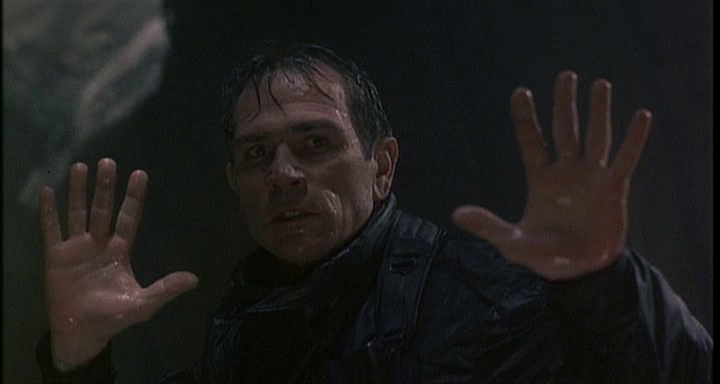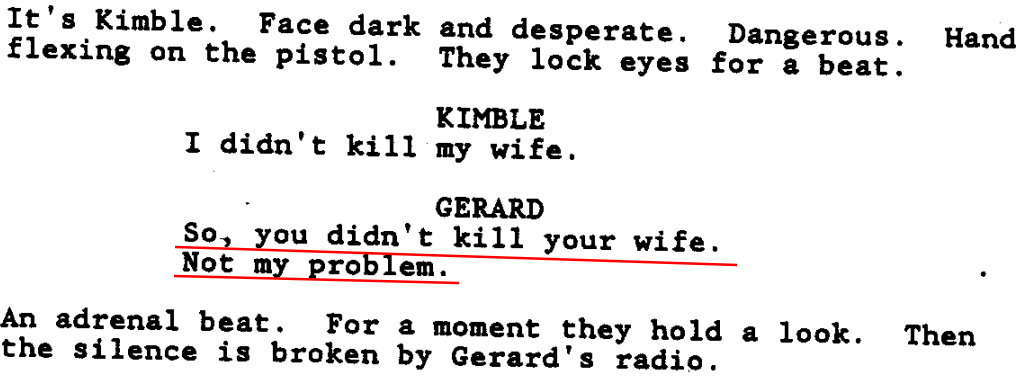
You know the rule of thumb: reduce dialogue as much as you can in your script. Whenever possible, avoid it. Sometimes, though, one line of dialogue is better than a silent beat. For example, when a few words epitomize the characterization of the guy who says them — and, by doing so, also raise conflict.
This is precisely what we find in the famous tunnel scene in The Fugitive. Gerard and Kimble are face to face for the first time. Gerard has dropped his gun. Kimble has picked it up. He could use it. He doesn’t.
Here is the moment — a silent one — in an early draft of the screenplay, penned by David N. Thwoy:

And here is how the same moment is written by Jeb Stuart in a later draft of the script, with a few lines added:

You’ll notice I’ve emphasized Gerard’s words, which in the movie will be shortened to the beautiful and famous line: “I don’t care.” This answer expresses Gerard’s essence, for focusing on the task is everything for him. He knows his job and what is expected from him, and he will do it with the usual determination. Jeb Stuart comments: “I had to get it cross to the audience that these were not FBI, or sheriff’s deputies, or local police. These were U.S. Marshals, and I chose them as U.S. Marshals for one reason, and that’s because they are after felons […] There are no Miranda rights for convicted felons. If you see this guy, you are going to shoot this guy.”
A good reason for Kimble to take more risks, further challenging his antagonist.
If you would like to learn more about Gerard’s line — how it was the result of a negotiation between Tommy Lee Jones, the screenwriter, and the director — listen to the 90’s Blockbusters: Braveheart & The Fugitive episode of the Austin Film Festival On Story podcast. Honey for the ears for those who, like me, love this movie.

Be First to Comment